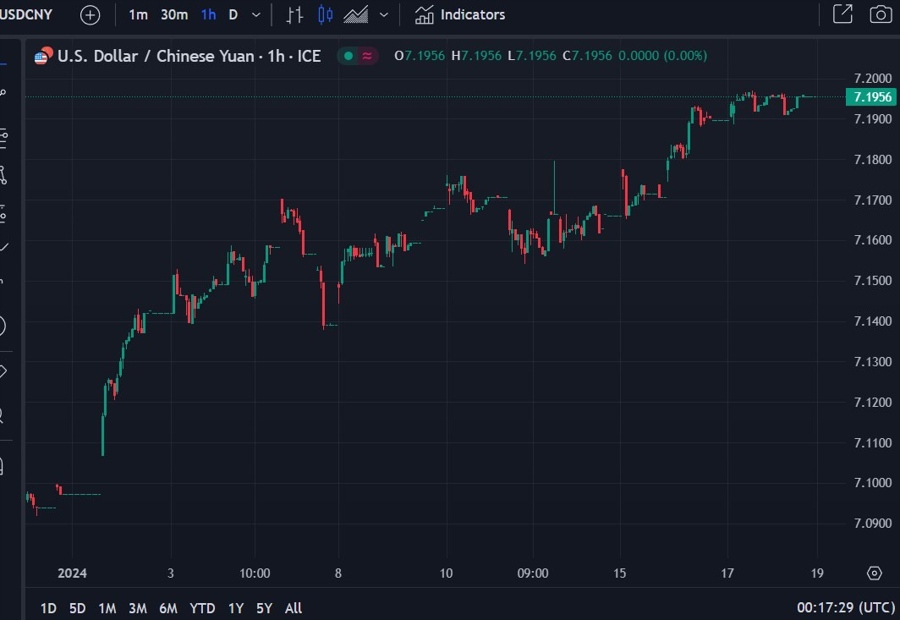China’s Currency Struggles: A Humorous Take on the Downward Spiral
What’s Going on with China’s Currency?
China’s currency has been on a fresh downward spiral since the beginning of the new year. Earlier this week, state banks were in the market selling USD/CNY ahead of 7.20 in an attempt to support the currency. On Tuesday, the offshore yuan (CNH) hit a 2-month low, adding to the woes of the Chinese economy. The People’s Bank of China has been holding the reference rate much lower than modelled estimates in an effort to prop up the yuan.
So, What Does This Mean for Me?
As an individual, you may not notice an immediate impact on your day-to-day life. However, if you have investments tied to the Chinese yuan or regularly engage in international trade with China, you may start to see some effects. The depreciation of the yuan could lead to higher import costs, affecting the prices of goods and services that rely on Chinese imports.
How Will This Affect the World?
China’s struggles with its currency could have ripple effects across the global economy. A weaker yuan could make Chinese exports more competitive, potentially sparking trade tensions with other countries. Additionally, it could lead to increased volatility in financial markets as investors react to the uncertainty surrounding China’s economy.
The Bottom Line
While China’s currency woes may seem like a distant concern, the reality is that they could have far-reaching implications. As the world watches to see how China navigates this challenging economic landscape, it’s important to stay informed and be prepared for any potential consequences.





